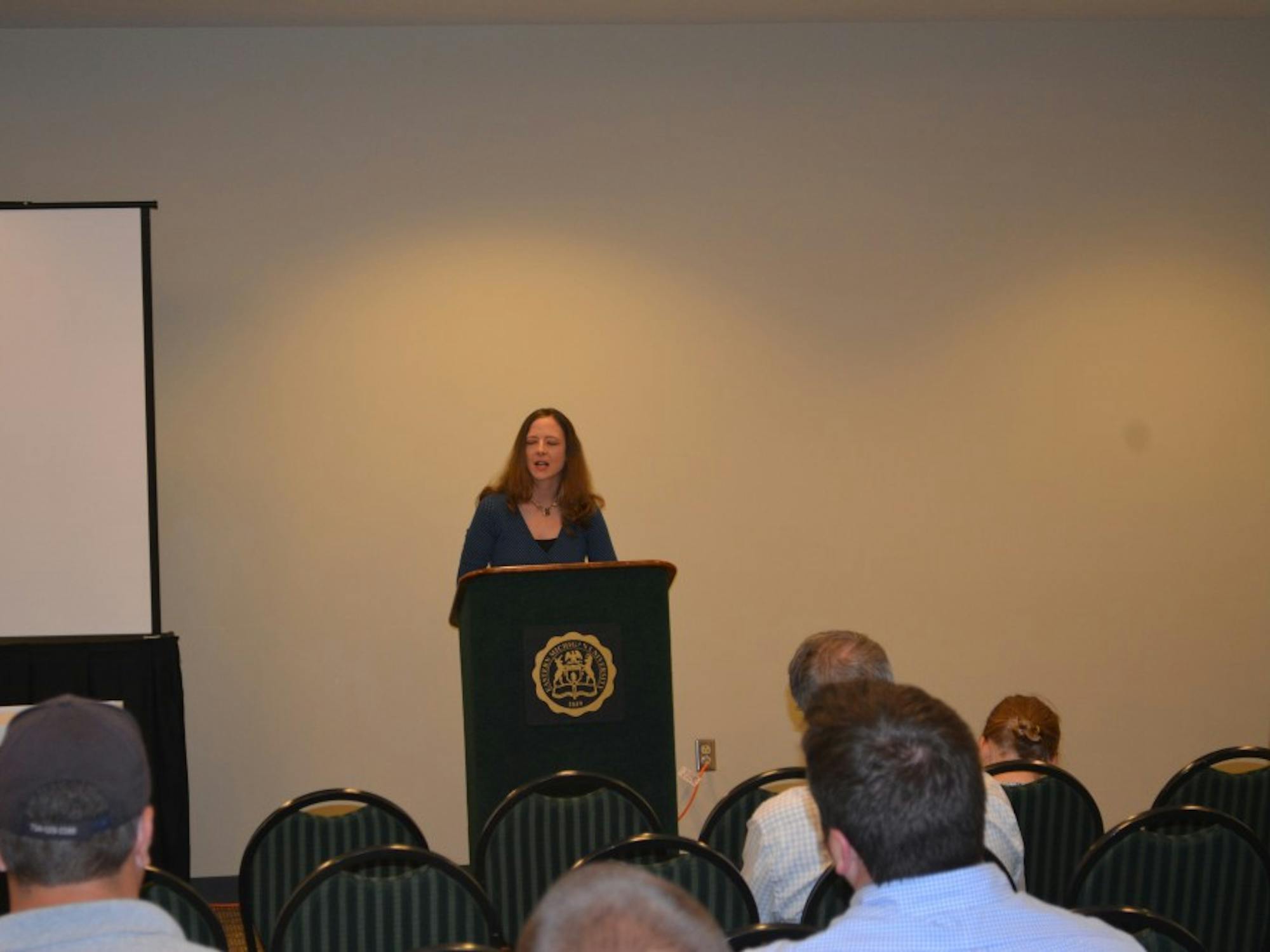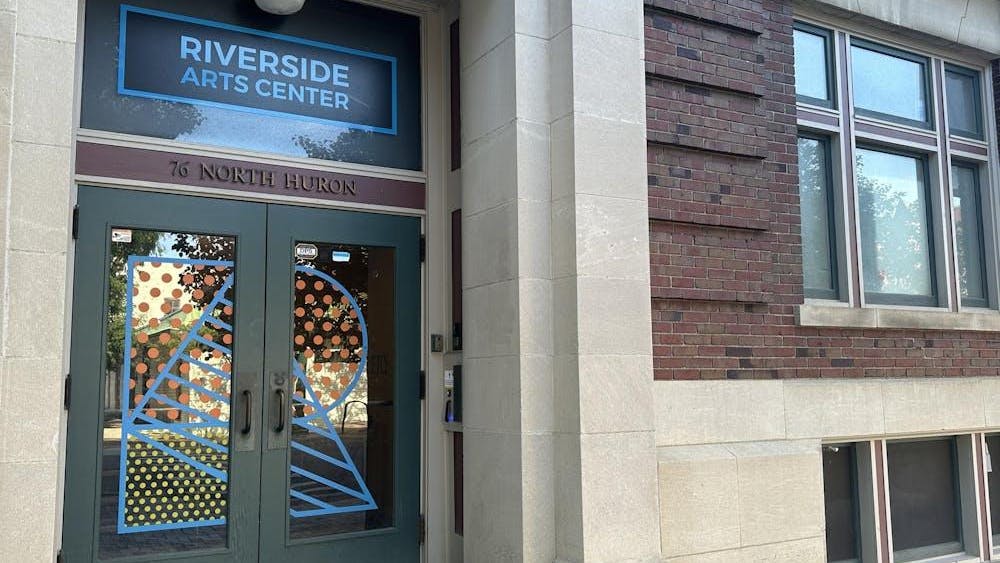By examining horrors from the past, Eastern Michigan University technology students try to use their education to prevent similar mistakes from happening in the future. To aid them in this process, Charity Vogel, staff reporter at The Buffalo News and author of “The Angola Horror: The Train Wreck that Transformed American Railroads,” spoke to EMU students Wednesday night in the Student Center.
“Failure is a valuable experience in the innovation process because problems are identified, which sometimes provides opportunity for solutions,” said Denise Pilato, Program Coordinator and Professor of the College of Technology at EMU. “Also, by analyzing a disaster of this magnitude, regardless of date, issues about risk and vulnerability are raised in the relationship between humans and the technology.”
The Angola Horror was a train wreck that occurred on Dec. 18, 1867 in Angola, New York. The Buffalo and Erie railroad’s eastbound New York Express derailed as it approached the high truss bridge over Big Sister Creek, killing approximately 50 people and severely injuring many more. Because of the lack of passenger manifests in that time period the actual numbers will never be known.
The Angola train wreck helped lead to technological advancements in railway travel to make it safer and more efficient for passengers and freight. Before the Angola wreck, it was common for railroads to mix-and-match incompatible railway cars with different size wheels, use candles and kerosene to provide light inside cars and to use wood burning stoves inside the railcars for heat, among other risky practices.
The wreck also helped to inspire the invention of the railway air brake by George Westinghouse, derivatives of which are still used today.
Students from the School of Technology gathered to hear Vogel’s lecture, which was followed by a question and answer session.
“During this lecture I was comparing this disaster with some kinds of disasters that could happen today,” said Mashid Niknahad, EMU PhD student in technology. “I think if something like that disaster happened right now it would be very huge…in Iran, in airplanes, we need some [specific] parts that they are restricted to use. Iran is very unusual because they have [on average] two airline accidents per year. There are lots of people killed [because of the lack of parts].”
Vogel grew up near where the wreck took place. She said she knew something terrible had happened in the community at some point, but that there was no record of what had happened except local lore. Some did not even know it involved a train wreck. Her instincts as a reporter led her to investigate the disaster to piece the story together.
“Technology changes in ways that are a response to terrible things that happen,” Vogel said. “Angola was an important [disaster], it was seminal railroad and seminal disaster period…It has been pretty much forgotten and I am hoping people understand what the Angola horror was and why it was important then and now.”
Since Vogel’s book, the city of Angola has erected a historical marker commemorating the victims of the crash.








